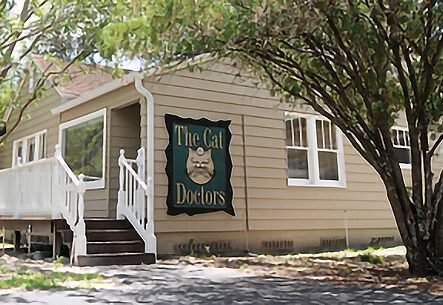Lories
Lories are brilliantly colored, playful birds with extroverted personalities and entertaining antics. Due to their curious nature, these birds are often subject to traumatic injuries in captivity. Although they have limited talking ability, they can be noisy, making a variety of high-pitched sounds. Because of their high-carbohydrate, liquid diet and relatively loose droppings, lories may be best appreciated in outdoor aviaries in a temperate climate. Because the birds also enjoy frequent baths, this environment provides the opportunity for them to play in light rains. Lories can be housed in colonies with known birds, but they may attack and kill newly introduced species. The primary consideration for the long-term health of lories is their diet. Improper feeding may lead to stress-induced disease.
Vital statistics
- Body length: 6-13 inches (15-33 cm)
- Body weight: 100-300 g
- Age of sexual maturity: 1-3 years
- Maximum life span: 15 years
Is your Lory a male or a female?
In most lory species it is impossible to distinguish a male from a female; therefore, surgical or laboratory methods must be used for sex determination in breeding facilities. Lories and lorikeets are somewhat of a challenge to breed but the offspring are easy to hand raise.
What do Lories do all day?
Lories are playful and can chase, retrieve and roll over. They are easily amused with simple toys. Because they love to chew, any toys must be free of toxic metals, hooks, sharp objects or small, easily consumed components. Providing fresh-cut branches from nontoxic, pesticide-free trees is suggested. Check with local authorities for recommendations of safe trees.
Are Lories tame?
Young, hand-raised lories adapt readily to new surroundings and handling procedures. They should be exposed early in life to novel situations (car travel, hospital visits, multiple visitors in the household, other household pets) so they are well adjusted to these events. Lories tame easily and seek the company of their owners. Lories are the companion bird species least likely to revert to a “wild” state if the level of attention is reduced.
How to identify your bird
One method used to permanently identify your lory in case of loss or escape is for your avian veterinarian to inject a custom microchip under the skin. Although individually numbered leg bands or rings may be applied, this method is unreliable and may result in potential damage to the bird.
Why the wings should be clipped
Lories that are allowed unrestricted freedom in the home can encounter numerous physical dangers or toxins; therefore, wing clipping is recommended. The goal of clipping the wing is not to make the bird incapable of flight, but to prevent it from developing rapid and sustained flight and to prevent escape. Your lory or lorikeet will require additional trimming 8-12 weeks after the start of a molt cycle. Birds maintained in outdoor aviaries (with double safety doors) may not require wing clipping.
How to keep your Lory healthy, happy and safe
- Give lots of attention.
- Feed a fresh, high quality, pesticide-free diet formulated specifically for lories.
- Limit supplementation to pesticide-free fruits and vegetables.
- Grit is not necessary with modern captive bird diets.
- Provide clean, fresh uncontaminated water (try using water bottles).
- Remove and replace food and water containers twice daily to maximize activity in a healthy bird.
- Provide an occasional opportunity for a bath, shower or misting (at least weekly).
- Avoid spraying the house with insecticides.
Housing for your Lory should:
- be as large as possible.
- be clean, secure and safe and easy to service.
- be constructed of durable, nontoxic material (avoid zinc).
- contain variable-sized perches made of clean, nontoxic, pesticide-free tree branches.
- have food and water containers placed at opposite ends of the enclosure.
- avoid having perches located directly over food containers.
- offer occasional opportunity for protected outdoor exposure to fresh air, sunlight (not through glass) and exercise.
Lories are very curious and will investigate anything new in their environment. That is why it is important to prevent their access to:
- ceiling fans
- hot cooking oil
- overheated nonstick-coated cookware
- leg chains
- sandpaper-covered perches
- tobacco and cigarette smoke
- chocolate, avocado, salt, alcohol
- toxic houseplants
- pesticides
- toxic fumes
- easily dismantled toys
- dogs, cats and young children
- cedar, redwood and pressure-treated wood shavings
- sources of lead or zinc
- plug-in air fresheners
- heavily-scented candles
What your veterinarian looks for in a healthy Lory
- Dry, open nares
- Clear, bright eyes (no discharge)
- Smooth beak
- Alert, erect posture
- Body free of lumps and bumps
- Smooth, bright feathers without color breaks, transparency or ragged edges or bald spots
- Even, reptilian pattern on the feet, and nails of appropriate length
Most common disorders of Lories
- Liver disease
- Hemochromatosis
- Obesity
- Circovirus
- Fungal infections
- Bacterial infections
- Injuries
- Parasites
- Reproductive disorders
Many common disease conditions in lories and lorikeets are the result of malnutrition. Visiting your avian veterinarian for routine health checks will help prevent many diseases and support you in having a long, satisfying relationship with your lory or lorikeet.
Background information
Lories and lorikeets are native to areas in Australia and the South Pacific islands. Because they are not legally exported from Australia, most companion birds are obtained through quality domestic breeders. In general, lorikeets may be slightly smaller than lories in size. Lorikeets have pointed tails; lories have rounded tails. The Blue Mountain lorikeet and blue-streaked lory are species commonly maintained as pets due to their cheerful, affectionate nature. Lories are distinguished from other psittacines by their tongues, which have elongated papillae that form brush-like tips adapted for the collection of pollen and nectar. In captivity, their dietary requirements are specialized. Your avian veterinarian can recommend the appropriate diet for your lory or lorikeet.
Courtesy of Zoological Education Network
Tampa, FL 33615 (View map)
Tampa, FL 33647 (View map)
Tampa, FL 33617 (View map)
Tampa, FL 33647 (View map)








